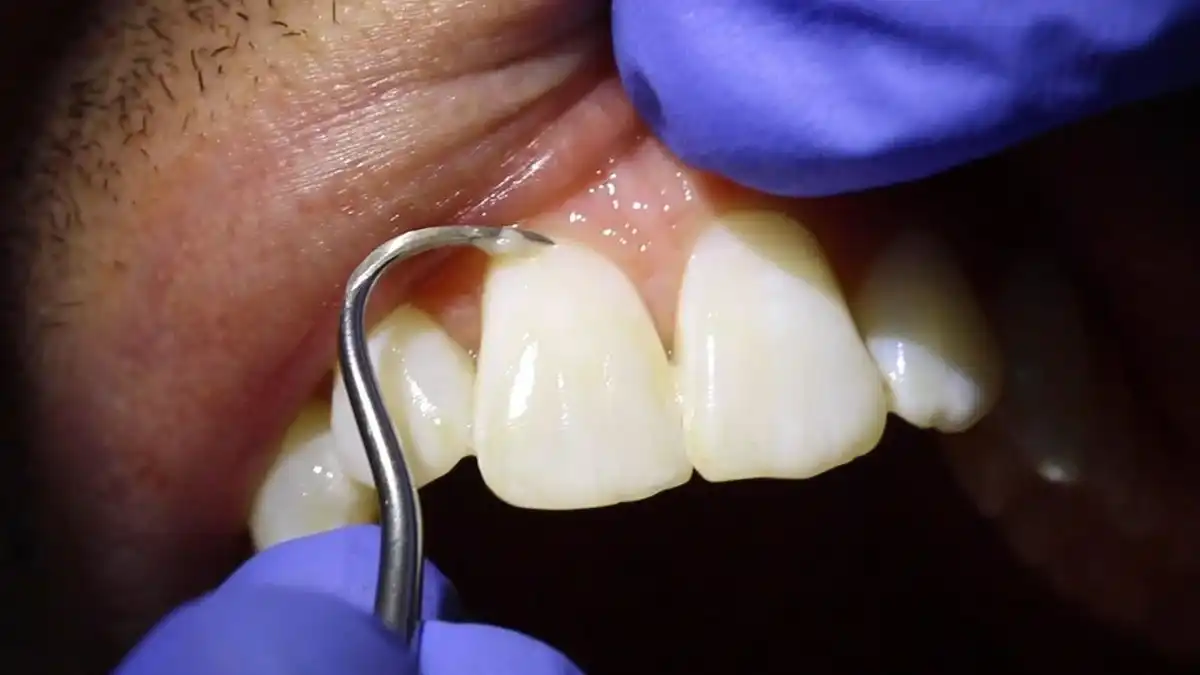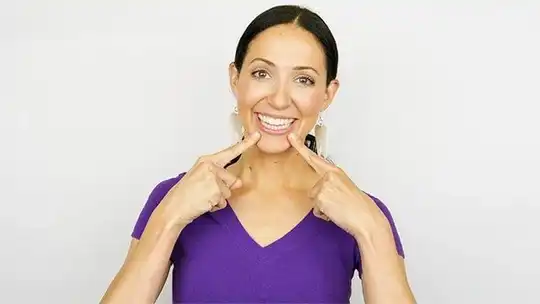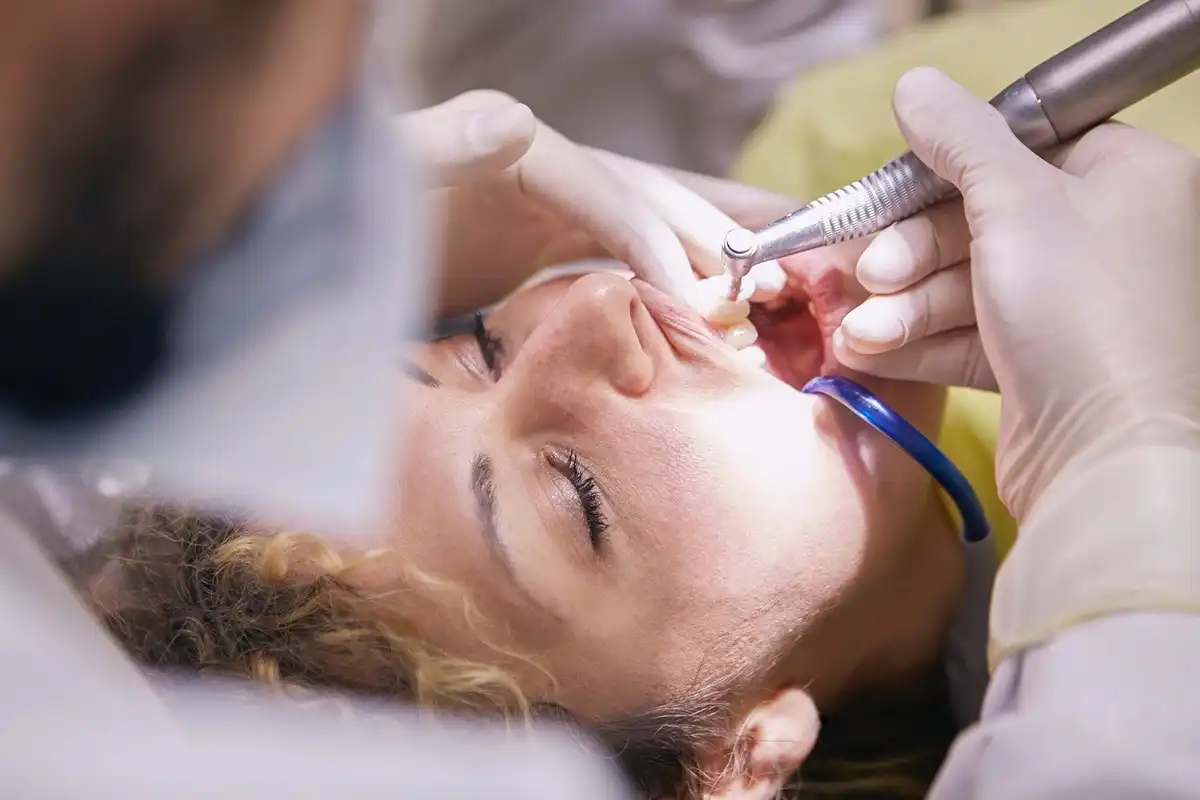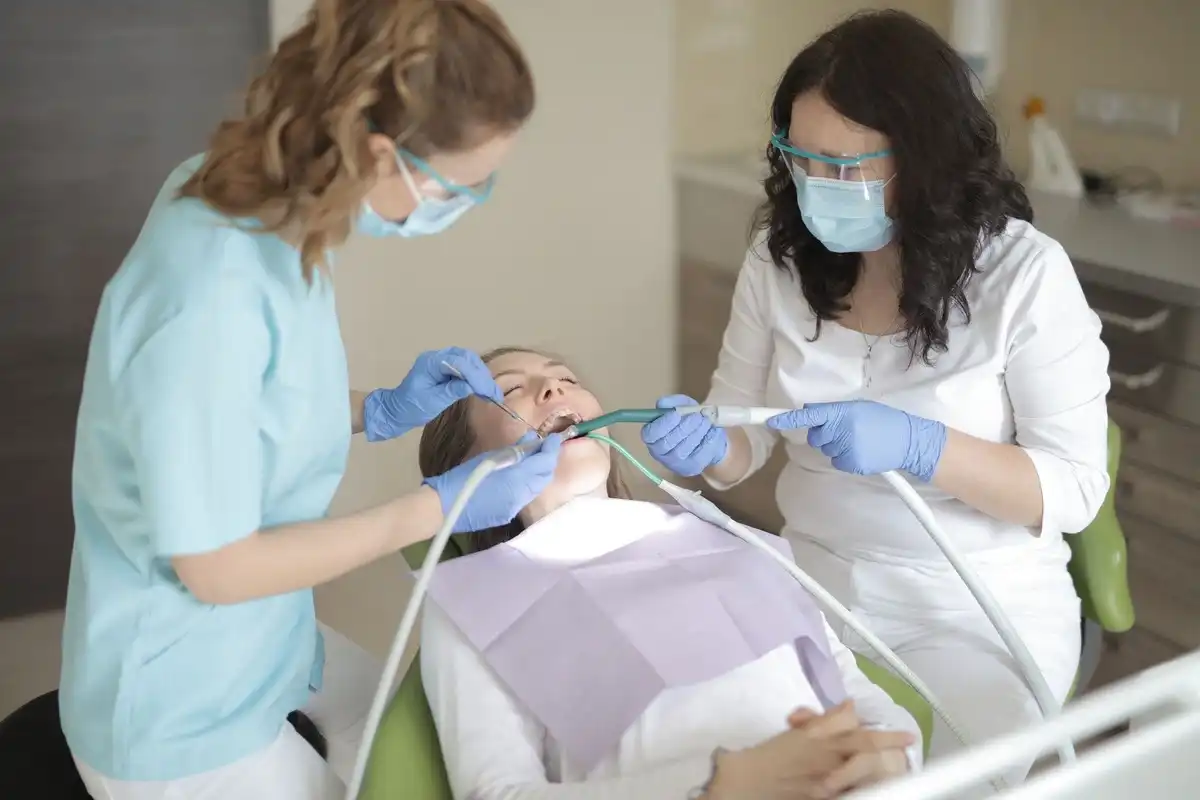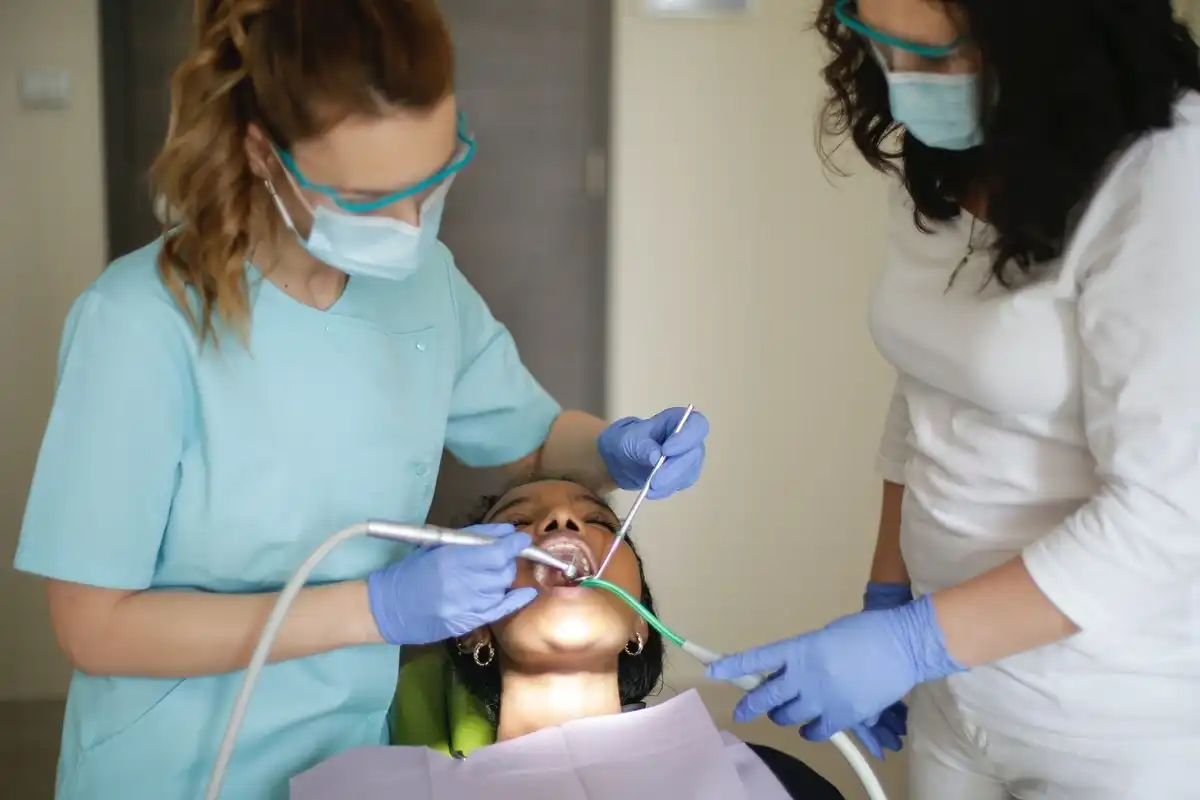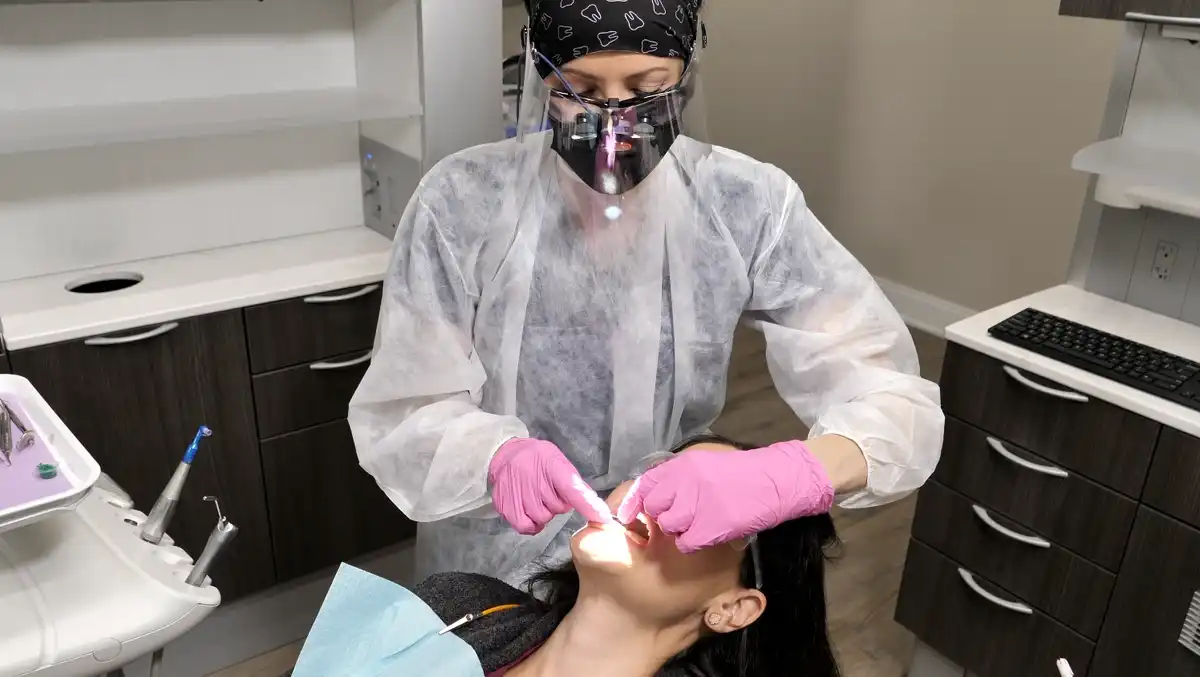How To Pick A Dental Hygiene School


One of the most critical parts about deciding to become a registered dental hygienist (RDH) is picking out where you want to go to school. Dental hygiene schooling is consistent from one program to the next, as each school is required to have special accreditation by the Commission on Dental Accreditation (CODA) and cover specific coursework. But there isn’t necessarily a hygiene school around every corner, so you’ll want to know what to look for before you start to apply.
Choosing a Dental Hygiene Program
First off, go to your State Board of Dental Examiners website and search for credentialed dental hygiene programs. They will list all of the programs in the state. If you’re considering moving away to go to college, there are also national lists of approved dental hygiene programs. Pay careful attention that it isn’t a “pre-dental hygiene” program, as that does not necessarily mean they offer dental hygiene courses on their campus. Dental accreditation ensures that the education meets industry standards and is essential for board exams and licensure.
Introduction to Dental Hygiene
Dental hygiene is a vital profession that plays a crucial role in maintaining the oral health and well-being of individuals. As a registered dental hygienist, you will work closely with dentists and other healthcare professionals to provide preventative dental care, educate patients on proper oral hygiene practices, and diagnose and treat various oral health conditions. With a career in dental hygiene, you can make a positive impact on people’s lives and enjoy a rewarding and challenging profession.
Benefits of a Career in Dental Hygiene
A career in dental hygiene offers numerous benefits, including:
- Job Stability and Growth: The demand for dental hygienists is high, and the profession is expected to grow faster than average in the coming years. This means job security and plenty of opportunities for new graduates.
- Competitive Salary and Benefits: Dental hygienists are well-compensated, with median salaries ranging from $70,000 to over $100,000 depending on location and experience. Additionally, many positions offer excellent benefits packages.
- Opportunities for Advancement: With experience and additional education, dental hygienists can move into leadership roles, teach, or pursue specialized careers in research or public health. This allows for a dynamic and evolving career path.
- Personal Satisfaction: As a dental hygienist, you will have the opportunity to make a positive impact on people’s lives, improve their oral health, and enhance their overall well-being. The personal fulfillment that comes from helping others is a significant perk of the profession.
Location
Do you want to attend a dental hygiene school close to home or move away? Make a list of where the hygiene schools are located and do your homework to see if it’s an area you wouldn’t mind living in for at least two years.
Accreditation
You cannot sit for your dental hygiene board exams and licensure unless you are attending an accredited dental hygiene school. Accreditation by a specialized accrediting body ensures the program meets high standards of education and training. If it’s a newer program, it may have “accreditation pending,” which is also safe to apply to in most cases. Be sure you ask the program director about when they hope to achieve accreditation to make sure you’re eligible to take your board exams.
Types of Dental Hygiene Programs
Guess what? You have the choice of deciding which level of degree you want to earn while you’re in dental hygiene school: students can choose to pursue a dental hygiene associate degree, which typically takes two years to complete.
Associate Degree Programs
Surprise! You can be a dental hygienist with “just” a two-year dental hygiene associate degree. As long as you find a credentialed dental hygiene program near you at a local community college, you can graduate and become an RDH without going to school for a full four years. While there are some prerequisite courses required, Associate of Dental Hygiene programs don’t require as many core classes like you would see from a conventional bachelor’s degree. Lately, there has been a shift to try to get more programs to offer four-year degrees, but there are still several two-year hygiene schools out there to choose from.
Bachelor's Degree Programs
Dental hygiene schooling that takes place at a university (4-year school) will always be a bachelor’s degree program. Students can apply to the hygiene program toward the end of their second year of undergraduate studies. Keep in mind that because it is a bachelor’s degree, the total cost spent on dental hygiene schooling will be higher than going to a community college for an associate degree. However, a lot of people want to enjoy the full four-year college experience and have a complete degree under their belt for expanded professional options outside of clinical hygiene in the future.
Master's Degree Programs
Some dental hygienists choose to go back to school for a master’s degree because they want to teach at the college level or work in research. To earn a Master’s in dental hygiene, you must already be an RDH and have an undergraduate degree; if you have an associate degree in hygiene, you can have a bachelor’s degree in something else and still apply to a master’s program. A master's degree in dental hygiene typically takes two years to complete. Grad students will focus on research, statistics, advanced clinical skills and methodologies, and public health with the goal of preparing them to become leaders in the field of dental hygiene. Graduates of a master's program may go on to work in research or academia, or they may use their advanced skills to provide specialized patient care.
Length of Program
Once you’re in an Associate or Bachelor of Dental Hygiene program, you’ll spend the next two years strictly studying patient care practices, clinical hygiene, pathology, pharmacology, radiology, community dental health, lab materials, and similar topics related to dentistry. Most people require at least three years to complete an associate degree due to the prerequisite requirements and four years for a bachelor’s degree. Master programs can typically be completed on a part-time basis, but undergraduate hygiene school requires full-time enrollment for two years.
RDH Program Details
Curriculum and Clinical Experience
Our dental hygiene program is designed to provide students with a comprehensive education in dental hygiene, including both classroom and clinical instruction. The curriculum covers topics such as:
- Oral anatomy and physiology
- Dental hygiene techniques and instrumentation
- Radiology and imaging
- Pharmacology and pain management
- Patient assessment and diagnosis
- Treatment planning and case management
- Community health and prevention
Students will also participate in clinical experiences, working directly with patients under the supervision of licensed dental hygienists and dentists. This hands-on training will help you develop the skills and confidence you need to succeed as a dental hygienist.
Faculty and Facilities
Our faculty consists of experienced dental hygienists and dentists who are dedicated to providing students with a high-quality education. Our facilities are state-of-the-art, with modern equipment and technology that simulates real-world clinical environments. Our dental hygiene clinic provides students with the opportunity to work with patients and gain practical experience in a supportive and supervised setting.
Admission Requirements for a DH Program
Ok, so now that you have an idea of which dental hygiene program you want to go to—or at least apply to see if you get in—it’s time to start understanding the dental hygiene program application process. Here’s everything you need to keep in mind:
1. Prerequisites
Most dental hygiene programs will have close to the same prerequisite coursework requirements, with a few exceptions. Check out the degree plans of the programs you’re interested in and make a list of all of the classes they require before you’re admitted. There will likely be prerequisites like microbiology, chemistry, anatomy and physiology, etc. However, some also require college algebra, speech, history, and similar classes.
Know what you need to take so that you’re not caught off guard when it’s time to apply. For example, check to see if your prerequisites require their own prerequisites. If you’re hoping to take them the summer before hygiene school, you might be a little too late for the application cycle to make yourself competitive for the admittance committee.
2. GPA Requirements
You want to do your best in your prerequisite classes—particularly the science ones—to get good grades. The higher your GPA is, the more competitive you’ll be as a dental hygiene school applicant. Some schools are more challenging to get into than others, plus strong grades in health science courses will show that you’re an excellent candidate for the rigors of hygiene school.
3. Admittance Testing
Some dental hygiene programs require an admittance test as part of the application process. This step is something that’s case-by-case, depending on the school you plan to apply to. Dental hygiene admittance tests cover health science, logical reasoning, mathematics, etc.
4. Shadowing a Dental Hygienist
Dental hygiene schools love applicants with firsthand experience shadowing a dental hygienist in their community. Some even require it. If you’re considering going to hygiene school, ask your local dentist’s office if you can come in and shadow the hygienist for a day or half day. Watching what the hygienist does can familiarize you with the environment and also reassure you that hygiene is a field you want to get into.
Bonus: Most of the hygienists or dentists you shadow will also be willing to write recommendation letters once it’s time for you to apply to hygiene school.
5. Draft a Strong Personal Statement
Why do you want to be a dental hygienist? You’ll want to write it out for your admissions essay. Since applying to dental hygiene school is separate and in addition to applying to the college, this essay will go straight to the hygiene director and staff who review the applicants and rank them. A great personal statement could be the tiebreaker when it comes to who gets into the RDH program and who is put on a waiting list. Even though it can feel embarrassing and like you’re exposed, have at least 2-3 different people read through your essay and give their honest input; never send your first draft!
6. Maintain Professionalism During the Interview
Certain dental hygiene schools require an in-person interview. While it might seem a little old-fashioned, most of these schools also have rigid dress codes. Make sure any tattoos are covered, facial piercings are removed, your hair is clean, and your nails are well manicured (most schools don’t allow you to even have nail polish or acrylic nails.) Wear slacks or a skirt that comes down to your knees, and do not wear any low-cut blouses. Pay attention to the details; clothes should be pressed and clean, and you should wear closed-toed shoes.
What to Expect in a Dental Hygiene Program
Dental hygiene students in associate and bachelor dental hygiene programs will participate in clinical coursework where they treat real patients, in addition to extensive lecture courses on all areas of oral and systemic health. They’ll also study pharmacology, radiology, public health, and other related dental topics. Master’s degree programs are the only non-entry-level programs where students must already have a degree and active RDH licensure.
Associate Degree Programs
It’s a little deceiving to call associate degree dental hygiene programs a “two-year” program because students will need at least one year of prerequisites before attending hygiene school. There may be some exceptions to the rule, but that has typically been the case for the last 20+ years. Associate dental hygiene programs consist of the same clinical and lecture courses as bachelor’s degree programs, minus the broader scope of core undergraduate class requirements. After graduation, you’ll take your board exams and start working! If you want, you can go back to school to complete your bachelor’s degree in dental hygiene or another area of interest.
Bachelor's Degree Programs
Depending on which school you’re attending, at the university level, most RDH programs will be 4-year bachelor’s degrees. These programs include the same coursework in dental hygiene as an associate degree but with additional undergraduate work for a comprehensive, well-rounded degree. For example, you’ll likely take the additional history, government, and social sciences as part of your core classes that you would not take in an associate’s dental hygiene program. When you graduate from one of these programs, it is typically with a Bachelor of Science. The first two years of your degree are traditional core and prerequisite classes, and the last two years of school are dental hygiene lectures and clinicals.
Dental hygiene bachelor’s degree completion programs typically consist of 1-2 years of courses consisting of upper-level hygiene lectures and undergraduate core course completion. Many professionals attend these programs online and part-time while continuing to work.
Master's Degree Programs
A master’s degree requires additional rigorous research, typically with a final graduate project or thesis. Depending on your area of interest, you may even help to develop community or public health programs, perform clinical experiments, and write a whole lot of papers. Most master’s programs can be completed either full or part-time, so you can study at your own pace as opposed to traditional dental hygiene degrees. If you attend full-time, you’ll likely need at least 1.5-2 years to complete the graduate program. Most students also work as registered dental hygienists while they’re in school, so the majority of programs tend to be tailored to working professionals.
Licensure Requirements for Dental Hygienists
In order to be a licensed dental hygienist in the United States, dental hygiene licensure is essential. The minimum that you need is an associate degree in dental hygiene. However, many of the programs today are at universities, so bachelor’s degrees are just as common. In order to attain your licensure, you’ll need to sit for the written national board exam and also take a national clinical exam with a real-life patient.
Be sure you follow the testing requirements based on which state you plan to live and/or work in. Not all states require the same tests or clinical boards, so check with the American Dental Hygienists Association or licensing authorities before you register for what could possibly be the wrong one.
After you’ve submitted all of your test scores to the state and passed your exams, you put in an application for a dental hygiene license, and it’s delivered via mail. Be sure to check for other paperwork you need as part of the process, such as an up-to-date CPR card and any jurisprudence, nitrous oxide, sealant, or local anesthesia certifications.
Applying for a Job as a Dental Hygienist
Once you have your state dental hygiene license in your hand, you can start working. That being said, a lot of new RDH grads will start applying for jobs before graduation. Many new RDH grads find employment in private dental practice settings, even though you can’t work until you have your actual license. Your new employer can start getting patients on the schedule a couple of months out, or bring you on as an assistant to start getting you familiar with the practice.
After you take your national board exams, get to work brushing up your resume, lining up references, and interviewing at offices. Be sure to check job boards and your RDH school office, connect with placement agencies, or even sign on with a temp agency.
Looking for a job? Checkout my job board for current dental hygiene jobs!
Dental Hygiene Programs Recap
Dental hygiene is an extremely rewarding career that prepares students for professional and personal excellence in their careers. You get to help others and truly make a difference. Plus, the work-life balance is great (and so is the salary!) When you’re trying to decide on which dental hygiene program to apply to, always check the prerequisite requirements so that you can take those classes ahead of time.
Does it matter to you if you get an associate’s or bachelor’s degree? What’s available in your area? Do you think you’ll want to get a master’s degree later on? Both two and four-year dental hygiene programs take the same clinical coursework and earn the same salary, so it’s up to you which level of degree you want to complete. It can sometimes be competitive to get into a dental hygiene program, so it’s a great idea to keep your mind open and apply to as many programs as possible.

Make your inbox smile!

